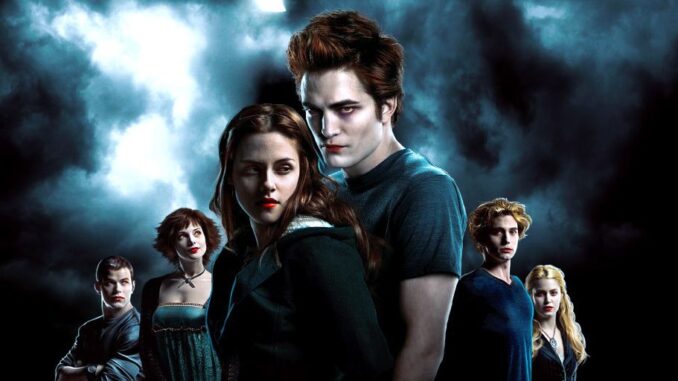
The Unfurling Scroll: Taylor Lautner and the Legacy Rewritten
The name Twilight still evokes a collective shiver of nostalgia, a whisper of a cultural earthquake that reshaped the landscape of young adult fiction and cinema. For a generation, it was more than just a saga of vampires, werewolves, and a clumsy human caught between them; it was a phenomenon, a shared obsession, a defining backdrop to adolescence. At its pulsing heart, alongside the glacial cool of Robert Pattinson and the wide-eyed earnestness of Kristen Stewart, stood Taylor Lautner, transformed from a boy into the formidable, often shirtless, Jacob Black. He was the sun to Edward’s moon, the raw, primal counterpoint to an ethereal romance. And now, years removed from the deafening roar of fan adoration and the blinding glare of flashbulbs, Lautner looks back at that maelstrom, that crucible of his youth, and declares with a calm, unequivocal certainty: "I'd do it all again."
This simple statement is not just a polite celebrity platitude; it is a profound testament to growth, acceptance, and the nuanced understanding of one's own legacy. To truly illustrate its weight, one must first recall the sheer, unadulterated intensity of the Twilight era for its young stars. Imagine being a teenager, still finding your footing in the world, only to be catapulted into a stratosphere of fame where every blink is chronicled, every muscle defined, every romantic entanglement dissected by millions. For Lautner, this meant a physical transformation that became a character arc in itself, the relentless pressure of embodying a beloved literary figure, and the constant, deafening roar of Team Edward versus Team Jacob, a rivalry that transcended mere fandom to become a cultural touchstone. He lived under a microscope, his formative years played out on a global stage, his identity irrevocably intertwined with a fictional wolf. The "doing it" was an exhilarating, exhausting, and often overwhelming experience, a high-wire act performed without a net.
Then came the "after." The final Twilight film wrapped, the screaming throngs eventually thinned, and the supernova that was the saga began its slow, inevitable cooling. For many child and teen stars, this transition can be a treacherous, even tragic, descent. The sudden absence of that all-consuming spotlight can leave a void, an identity crisis for those whose self-worth became intrinsically linked to public adoration. Typecasting becomes a professional straitjacket, and the challenge of carving out a mature career, free from the shadow of a defining role, proves immense. Lautner, like many before him, navigated this landscape. He pursued other projects, faced the inevitable critical gaze, and experienced the quieter, less glamorous reality of an industry that constantly seeks the next big thing. There were undoubtedly moments of frustration, of questioning, of seeking to shed the furry skin of Jacob Black.
Yet, it is precisely this journey through the "after" that lends such resonance to his current perspective. The statement "I'd do it all again" is not born of a selective memory that filters out the difficult parts. It is a profound acknowledgment that the entirety of the experience – the dizzying highs, the crushing pressures, the subsequent recalibration – forged the man he is today. It speaks to a wisdom gained through distance, a peace found in embracing one's past, no matter how chaotic or publicly scrutinized.
What, then, is the legacy Lautner now views with such clarity? It is multifaceted. Professionally, Twilight remains the monumental pillar of his career, an undeniable showcase of his dedication and a role that etched him into cinematic history. But personally, the legacy is far richer. It’s the crucible that taught him resilience, the furnace that forged his perspective on fame, and the foundation upon which he has built a life that now seems anchored in a quiet contentment. He doesn't regret the lost anonymity or the intense scrutiny because, perhaps, those very challenges honed his sense of self away from the public eye. The boy who was once defined by his abs and his loyalty to Bella has matured into an adult who understands that the Twilight phenomenon, in all its chaotic glory, was an unparalleled education.
In a world obsessed with reinvention and shedding past skins, Taylor Lautner's declaration stands as an illustrative essay in itself on the power of acceptance. It tells us that true growth isn't about erasing where you've been, but about integrating it, understanding its purpose, and ultimately, being grateful for the wild, winding road that led you to who you are. His willingness to "do it all again" is a quiet revolution, a testament to finding peace with a past that was anything but quiet, and a profound understanding that even the most blinding lights can, eventually, illuminate a path forward.
